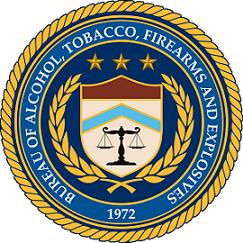The U.S. Bureau of Alcohol, Tobacco, Firearms and Explosives (ATF) has drafted a proposal to crack down on private gun sales, according to inside ATF sources.
In a letter last week to Attorney General Merrick Garland, government watchdog group Empower Oversight Whistleblowers and Research revealed that the ATF has created a 1,300-page document explaining why background checks should be required for all firearms sales, even those between private taxpayers.
This would effectively end private gun sales, argued the letter, which would violate the Constitution in more ways than one.
“Such an expansive rule that treats all private citizens the same as federal firearms licensees would circumvent the separation of powers in the Constitution, which grants ‘all legislative Powers’ to Congress while requiring that the President ‘take Care that the Laws be faithfully executed,’” Empower Oversight wrote. “To the extent such a rule prevents the private sale of firearms, it would also clearly violate the Second Amendment to the United States Constitution, which declares that ‘the right of the people to keep and bear Arms, shall not be infringed.’”
According to two sources within the ATF, the document was requested by the White House and was drafted by ATF lawyer Eric Epstein.
In March last year Biden ordered Garland to crack down on guns. The executive order directed the attorney general to develop a plan to “clarify the definition of who is engaged in the business of dealing in firearms, and thus required to become federal firearms licensees (FFLs), in order to increase compliance with the federal background check requirement for firearm sales, including by considering a rulemaking, as appropriate and consistent with applicable law.”
By August, the Department of Justice had proposed a rule “to expand the definition of who must obtain a license and conduct a background check before selling firearms.”
But even prior to Biden’s executive order, the ATF was collaborating with the FBI to track law-abiding taxpayers who purchase firearms.
Generally speaking, the procedure starts when the ATF asks the FBI to start monitoring a certain taxpayer’s gun transactions. A warrant is not necessarily included in the request. The FBI then adds that person to the National Instant Criminal Background Check System (NICS), where the taxpayer is secretly monitored. An Epoch Times analysis indicates that the ATF seems to specifically target minorities.
The NICS system is only intended to prevent gun sales to ineligible people. But many times, reasons like a taxpayer’s income status are used to justify these monitoring requests. For instance, a man in Arizona with a stated monthly income of $2,839 dollars was registered in the NICS after he purchased several guns.
One ATF agent stated, “In my experience, someone with this amount of income would not be able to afford 20 firearms.”
Similarly, a Texas man was investigated because he had no reported employment status.
One FBI agent targeted taxpayers for “purchasing an abundance of firearms without a license or known financial means to obtain the product.”
A Florida man was placed under daily surveillance for four months in 2020 because, as an FBI agent wrote, “based on my training and experience, I have not seen a legal firearms purchaser purchase approximately 30 firearms in a 120-day window for their personal collection.”
An agent in Wisconsin put a man under surveillance after he was discovered texting about purchasing and selling firearms.
After receiving an anonymous tip that a Hispanic woman in Texas had bought ten firearms in two weeks, the ATF marked her for tracking.
Additional records demonstrate that the federal government coerced certain taxpayers into declaring themselves incompetent, precluding them from obtaining a firearm. According to the Washington Examiner, the FBI, Secret Service, and U.S. Immigration and Customs Enforcement worked together between 2011 and 2019 to compel at least 60 individuals to declare that they were a “danger” to themselves or others, or that they did not possess the “mental capacity” necessary to be in possession of a firearm.
This seems to have been done as part of a plea agreement in at least one case. When a federal prosecutor was unable to establish mental incompetence, a plea agreement was made conditional on the defendant acknowledging his own incapacity to think clearly.




